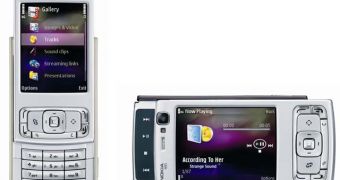All of you who dropped the cell phone on asphalt or concrete know that usually, the phone doesn't bounce off and it surely can't be used as a football more than once.
The reason iPods and cell phones stop working after pavement bounces is that the chips contain many nearly microscopic pathways that send operational signals throughout the device. Those pathways are disturbed by drops, so the limiting factor in making droppable phones is the chip inside them.
But soon, these could be made with all-plastic chips that would allow the gadgets to survive being dropped over and over by absorbing bounces better thanks to work of a Dutch researcher.
Not to mention the fact that, since plastic is so cheap to produce, the prices for these gadgets could drop substantially.
Currently, the chips inside electronics conduct electricity at least 1,000 times better than plastic, and it has been discovered that in plastics, the movement of charge was mainly hindered by the chain-like structure of the material.
A scientist named Paulette Prins, of the Delft University of Technology demonstrated that this major disadvantage could be overcome by using specially rebuilt plastic that conducts electricity as well as the silicon wafers that are commonly used to make the semiconductor chips that are the brains of cell phones, MP3 players and other portable consumer electronics.
The researcher advanced the work of a German group that had rebuilt the chain in plastics to form a ladder-like structure. By bombarding the specially developed plastic with electrons from a particle accelerator, she was able to study rapid electrical reactions and demonstrate the new plastic's ability to conduct electricity much better than regular plastic and as well as silicon chips : "My research shows that the mobility of charges along isolated chains can be as high as the mobility of charges in conventional semiconductors and when the organization of the polymer chains in electronic devices is optimized, all-plastic electronic devices can be developed that benefit from this high mobility"
Indeed, it would be nice to have bouncing cells, so that we could leave them laying around in the same room with babies and not worry about it becoming the main attraction of a weight throwing contest... and the added softness could be useful in case of angry lovers!

 14 DAY TRIAL //
14 DAY TRIAL //